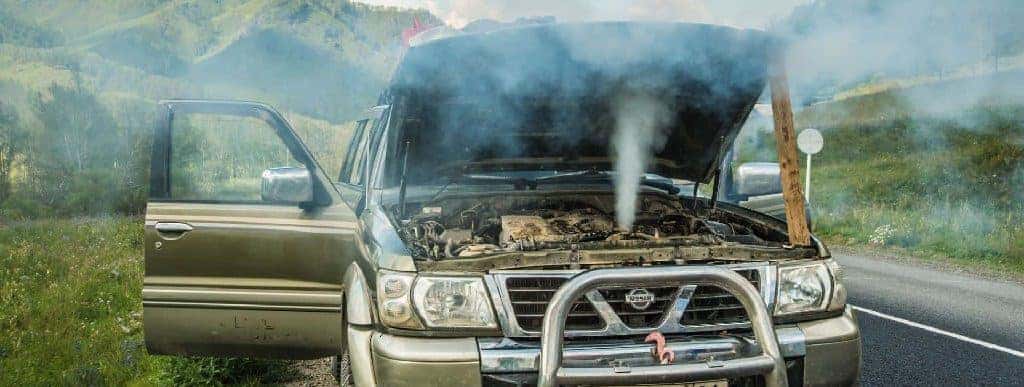


What to do when your vehicle overheats?
If your car overheats, it can cause several problems. For example, if your car's air conditioning has stopped working, there might be an overheating problem. Stop driving if you see that the temperature display has shifted to the "hot" side. Cars with an overheated engine can suffer catastrophic damage. They can't explode instantly but driving with an overheated engine can lead to costly repairs. Instead of risking costly repairs later, stop and fix the problem as soon as possible. Your engine can overheat for several reasons. Some of these problems are quite common on a hot summer day.
Coolant Not Being Circulated Properly:
The engine will overheat if the antifreeze/water mixture does not circulate properly. In warm months this mixture keeps the engine cool and in cold months it prevents it from freezing. check it regularly. Without leaks, the liquid evaporates over time. You can cool the engine down in a car repair shop by adding about ½ cup of water to a shallow container of antifreeze.
Leakage issues:
If your cooling system's water/antifreeze levels are consistently low, you leak someplace. Consult with a mechanic right away if this is happening to you. They'll locate the leak and provide you with a reasonable repair quotation.
You might need a hose replacement:
The hoses that circulate the coolant can become clogged or loosened over time. Even the smallest blockage prevents enough refrigerant from flowing. During an inspection, a mechanic can look for these and similar things.
Other reasons:
If the water and antifreeze levels are normal, your engine may have a more serious problem. Internal coolant leaks, dirt in the coolant lines, or a clogged radiator are all possibilities. If so, then you should have your car checked asap. as possible from a professional. You can spot problems early and save money on expensive repairs.
How to deal with an overheated car?
The following steps will help cool down an overheating engine: